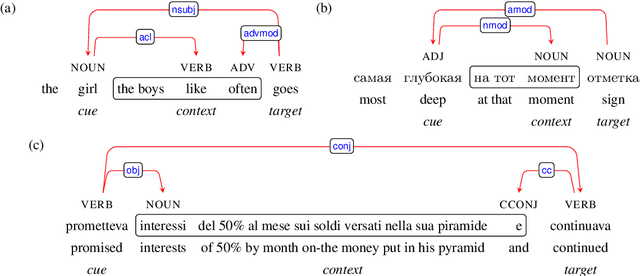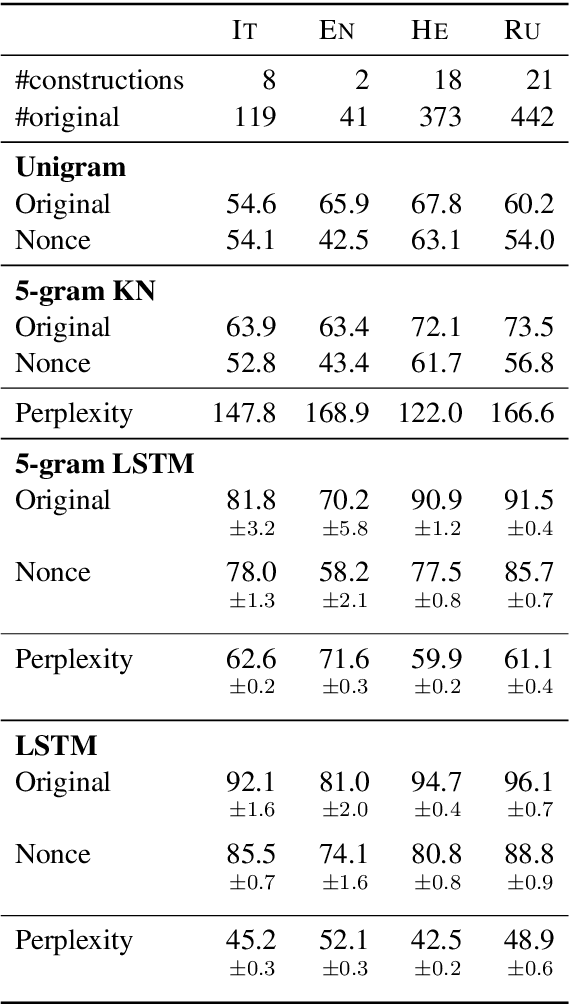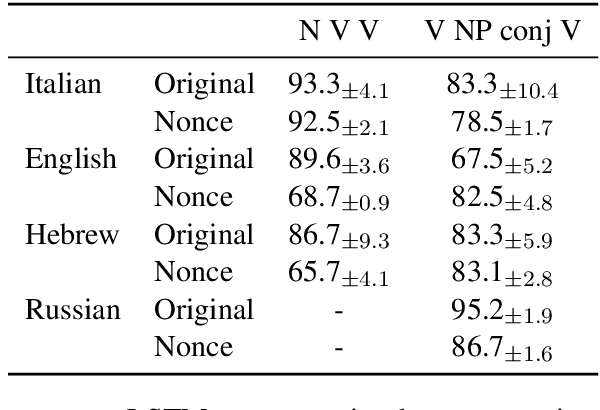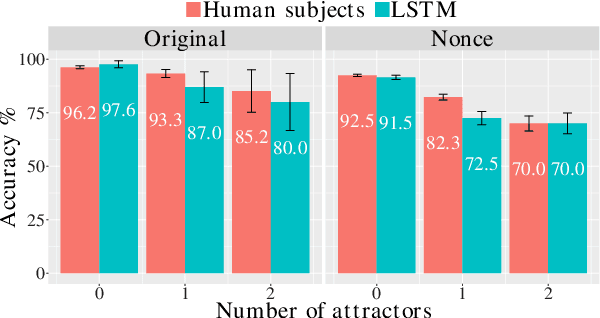Colorless green recurrent networks dream hierarchically
Paper and Code
Mar 29, 2018



Recurrent neural networks (RNNs) have achieved impressive results in a variety of linguistic processing tasks, suggesting that they can induce non-trivial properties of language. We investigate here to what extent RNNs learn to track abstract hierarchical syntactic structure. We test whether RNNs trained with a generic language modeling objective in four languages (Italian, English, Hebrew, Russian) can predict long-distance number agreement in various constructions. We include in our evaluation nonsensical sentences where RNNs cannot rely on semantic or lexical cues ("The colorless green ideas I ate with the chair sleep furiously"), and, for Italian, we compare model performance to human intuitions. Our language-model-trained RNNs make reliable predictions about long-distance agreement, and do not lag much behind human performance. We thus bring support to the hypothesis that RNNs are not just shallow-pattern extractors, but they also acquire deeper grammatical competence.
 Add to Chrome
Add to Chrome Add to Firefox
Add to Firefox Add to Edge
Add to Edge